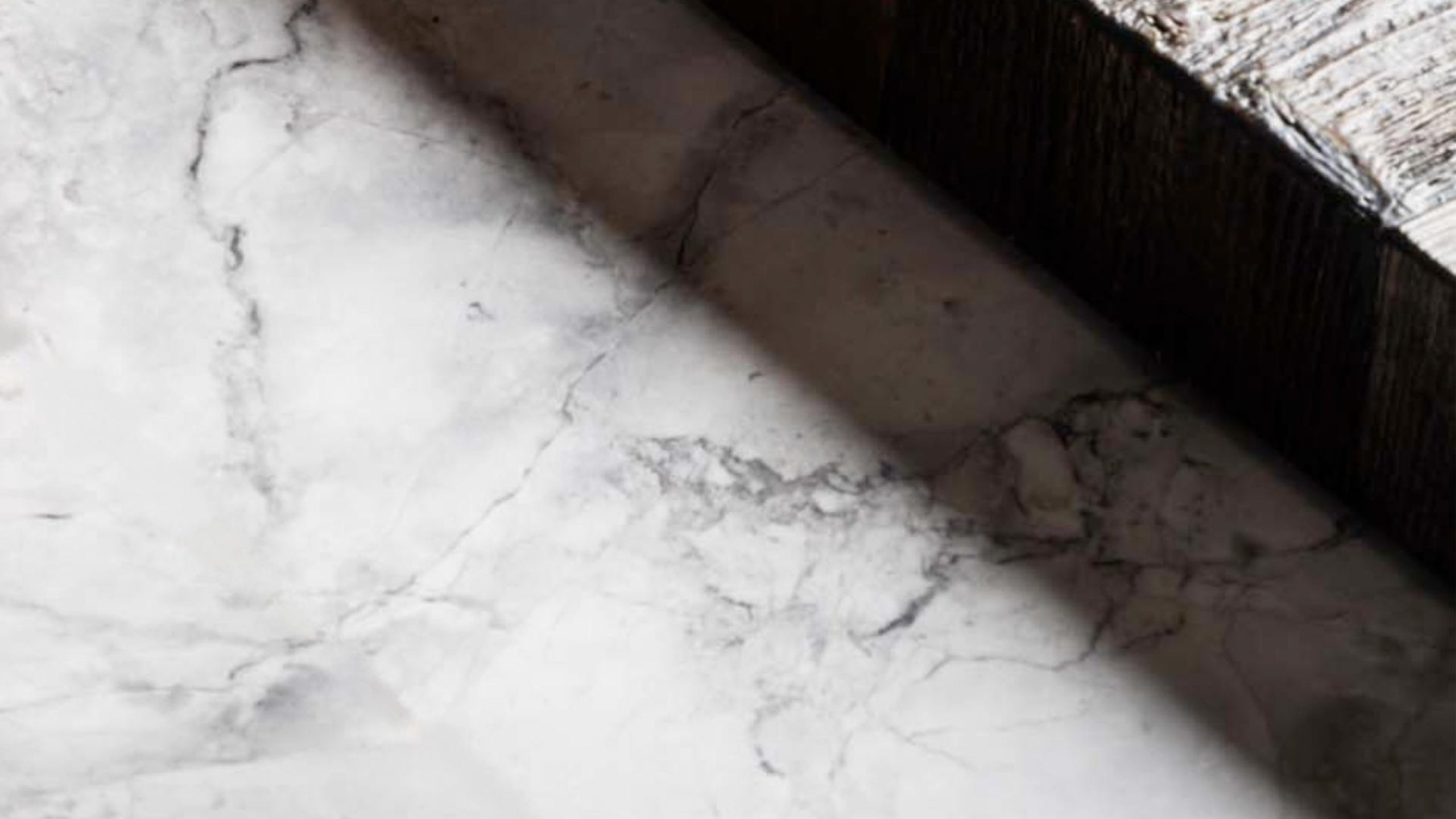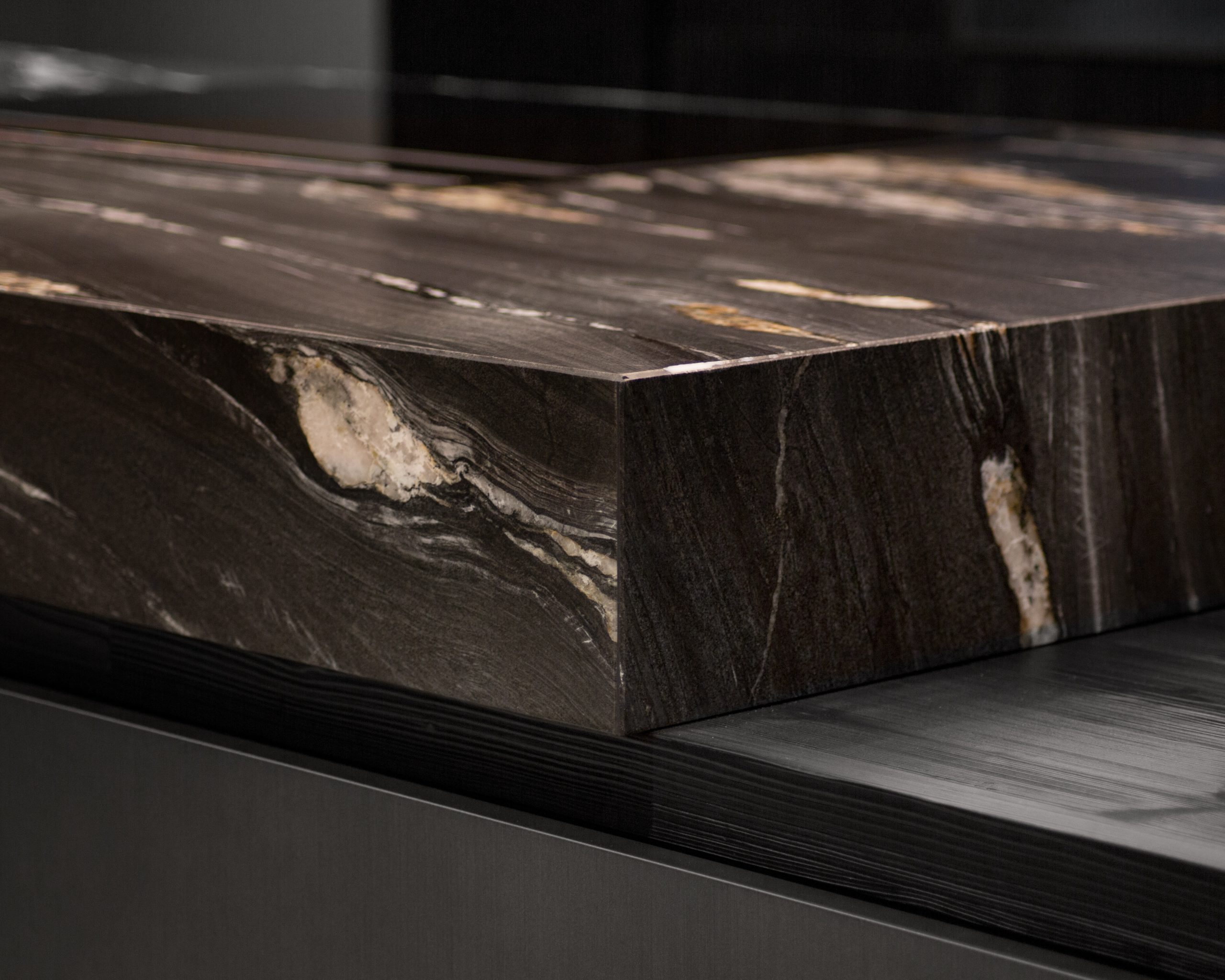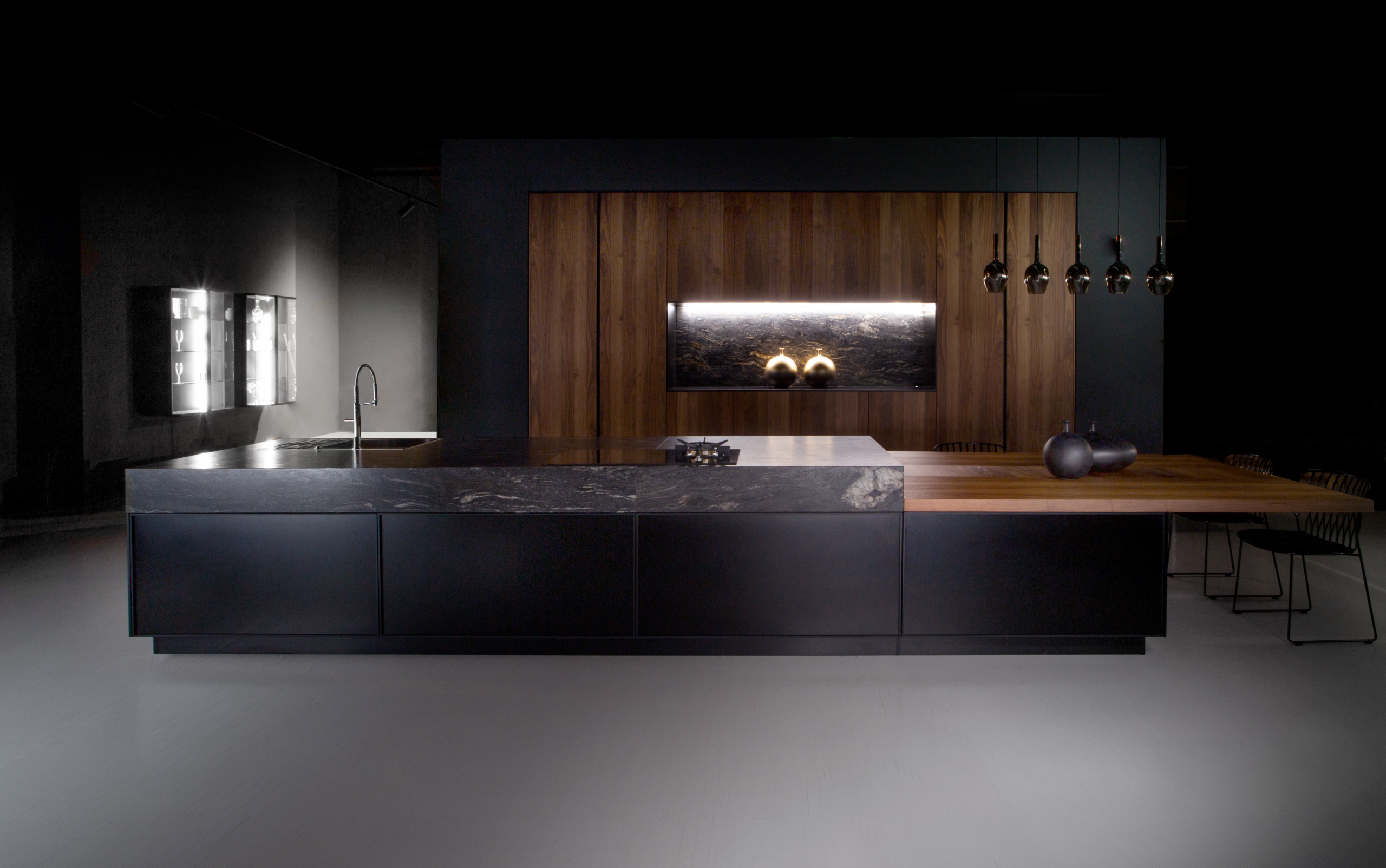May,2024
The best material for the kitchen countertop

Materials for the kitchen countertop: wood, natural stone, or synthetic?
The kitchen countertop is much more than just a surface for preparing meals. It is the first aspect you notice in the area that represents the heart of the home, the focal point that combines functionality and aesthetics. Choosing the right material for the kitchen countertop can make the difference between a welcoming environment and a cold one, between a high-quality kitchen and one with low durability. Among the various options available, three materials stand out for their popularity: wood, natural stone, and synthetic materials. Each of them has its pros and cons, which is why we decided to delve into each option to help you make the best decision based on your needs.
The wooden kitchen countertop: warmth and versatility
Wood is perhaps the most classic material for a kitchen countertop, appreciated for its warm natural beauty. Wood species vary widely, allowing a wide range of choices to adapt it to different kitchen styles.
The welcoming appearance and natural feel of wood make a kitchen with a wooden countertop an inviting place where you can enjoy pleasant moments with family and friends.
Although wood can be durable and resilient, it is essential to care for it properly. Proper treatments, such as sealing and applying protective oils, can help maintain its integrity much longer over time. However, wood is more susceptible to scratches, dents, and damage caused by sharp objects, curious children, pets, or excessive heat.
One of the most appreciated features of wood is its versatility in terms of design.
The wooden kitchen countertop can be easily adapted to different aesthetic preferences, from rustic and traditional to contemporary and modern.
Wood can combine perfectly with other natural materials, such as stone or metal, to create fascinating and harmonious compositions. This ensures you have a beautiful and comfortable kitchen.
Although wood offers a warm and inviting appearance, it is important to know that it requires constant care and maintenance to preserve its beauty. Due to its porosity, wood can absorb liquids and stain easily.
Therefore, it is essential to clean it regularly and dry it thoroughly to avoid irreversible damage.
The natural stone kitchen countertop: timeless elegance
Natural stone is a luxury choice for a kitchen countertop, particularly loved by those seeking timeless elegance. The intrinsic effect of prestige and refinement it offers is hard to match with other materials, even among synthetic ones that try to imitate its aesthetic effect.
Among the many natural stone options, the most popular are marble, granite, and quartz, each with its own characteristics.
Here is a brief but useful summary of the properties of natural stones:
Marble: This material is known for its timeless beauty and unique veining. Each piece of marble is a work of art in itself, but it should be noted that it is sensitive to stains and requires careful maintenance.
Granite: The robustness of granite makes it resistant to scratches and heat. It is available in a wide range of colors and natural veining, easily adapting to different kitchen styles.
Quartz: Although it is a synthetic material, quartz is composed of 90% natural stone powder, giving it a stone-like appearance but with greater resistance to stains and wear. Due to this composition, it is still considered among natural stones.
Natural stone, in general, offers exceptional robustness and solidity.
Depending on the stone chosen for the kitchen countertop, it can resist cuts and abrasions, making it ideal for intensive kitchen use. Additionally, it is highly heat-resistant, allowing you to place hot pots and pans directly on the surface without any issues.
The smooth and compact surface of the stone makes cleaning very simple.
A damp cloth and mild detergent are enough to remove dirt and surface stains. However, some porous stones like marble require periodic sealing to prevent liquid infiltration.
Synthetic kitchen countertops: practicality and customization at your fingertips
Synthetic materials are a modern and versatile choice that is increasingly popular for Italian kitchen countertops. Designed to combine practicality, aesthetics, and durability, these materials offer a wide range of options to customize your kitchen according to your taste and needs.
In general, the most commonly used synthetic materials for kitchen countertops are:
Composite Quartz:
Made with quartz powder and resins, composite quartz is extremely durable and stain-resistant. It is also highly customizable, offering a wide range of colors and finishes.
Solid Surface:
This material is made from acrylic resins and natural minerals, creating a seamless surface without visible joints. It is highly resistant to wear and scratches and is available in a wide range of colors and finishes.
Laminate:
Made from layers of paper impregnated with resins, laminate is perhaps the most economical material and offers a wide choice of colors, patterns, and finishes.
Synthetic materials are known for their resistance to stains, scratches, and wear. Their smooth and waterproof surface also makes them easy to clean and highly hygienic. However, some synthetic materials may not be as heat and cut-resistant as natural stone.
One of the main attractions of synthetic materials is the ability to customize the kitchen design. With a wide range of colors, finishes, and decorative options, you can create a unique kitchen tailored to you and your tastes.
If you are considering this choice, remember to evaluate your habits in the kitchen.

Everything you need to consider when choosing the right material for your kitchen countertop
The kitchen countertop is undoubtedly a fundamental part of the home environment. Choosing the right material can significantly influence its appearance, functionality, and longevity. Among the various options available, such as wood, natural stone, and synthetic materials, what characteristics should you consider to make an informed choice that meets all your needs?
First and foremost, it's crucial to consider the style and design of the kitchen you want to achieve, or the house if it is already furnished. Wood, with its natural beauty and intrinsic warmth, is perfect for a rustic or traditional setting but can also be adapted to a modern or contemporary style by carefully selecting from the numerous available colors and finishes. On the other hand, natural stone, such as marble or granite, can add a touch of elegance and prestige to the kitchen. It is the perfect option for those who desire a luxurious and chic environment. Lastly, synthetic materials offer a wide range of colors and finishes, allowing you to personalize the kitchen according to your taste and style while saving on materials, which are generally more economical.
Besides the aesthetic aspect and design, it's essential to evaluate the durability and resistance of the materials.
Wood, if properly treated and maintained, can last up to twenty years. Moreover, more and more carpenters are offering restoration services for wooden kitchens. This allows for greater peace of mind, considering that wood is more susceptible to scratches and damage compared to harder materials like stone.
Granite and quartz, among the natural and synthetic stone options, are particularly resistant to scratches and heat, making them ideal for intensive kitchen use, although they can be sensitive to certain products (such as particularly aggressive chemicals).
Synthetic materials are also known for their resistance to stains and wear, making them ideal for families with children or for those who use the kitchen frequently.
Another important factor is hygiene and ease of maintenance.
Wood offers a warm and welcoming look but requires regular care to maintain its beauty and integrity. Its porosity makes it more susceptible to stains and liquid infiltration, so it is essential to clean and dry it carefully after each use.
Conversely, natural stone and synthetic materials have smooth and compact surfaces, making them easy to clean and highly hygienic. However, it is important to know that some porous stones, such as marble, may require periodic sealing to prevent liquid infiltration.
Cost is another determining factor in choosing the kitchen countertop material, perhaps the primary factor. Wood, depending on the chosen quality, can have variable costs. Natural stone, like marble, tends to be more expensive, while granite and quartz are slightly more accessible.
Beyond the main materials, there are other more innovative and less traditional options for kitchen countertops. For example, ultra-compact materials like Dekton or Laminam combine the performance of natural stone with the lightness and versatility of synthetic materials.
These solutions can be ideal for those looking for an innovative material with advanced performance.
Useful tips for maintenance
To preserve the beauty, efficiency, and longevity of your kitchen countertop, it is essential to follow the right maintenance practices for each material used.
Here are some specific tips for the care of kitchen countertops made of wood, natural stone, and synthetic materials:
Wood
To preserve your wooden kitchen countertop for as long as possible, the main advice is to avoid prolonged exposure to heat sources and the use of hot pots and pans directly on the surface. Instead, use coasters or trivets.
Additionally, remember to immediately clean any liquids or substances spilled on the surface to avoid permanent stains. You can use a damp cloth and a mild detergent for daily cleaning.
Lastly, remember to apply protective oils and waxes periodically to keep the wood hydrated and resilient, and avoid using harsh or abrasive chemicals that could damage the wood's finish.
Natural Stone
To preserve your natural stone kitchen countertop for as long as possible, always use cutting boards or coasters to protect the surface from scratches and dents. It’s a good idea to seal the stone with a specific product for the material used, to prevent liquid infiltration and permanent stains.
Also, avoid using acidic or abrasive cleaners that could dull the surface. Instead, clean with warm water and a neutral detergent, and dry the stone thoroughly after each cleaning to avoid water and limescale buildup.
Synthetic Materials
Although resistant to stains, it is still advisable to immediately clean any coloring or corrosive substances to avoid permanent damage to your synthetic kitchen countertop. It is also good practice to use cutting boards to protect the surface from scratches and cuts.
Always remember to clean with warm water and a neutral detergent, using a soft cloth or a non-abrasive sponge. Additionally, by avoiding exposure to heat sources and the use of hot pots or pans directly on the surface, you can ensure a longer lifespan for your kitchen countertop.
By following these simple tips, you can preserve your kitchen countertop, regardless of the material you have chosen.
As a final piece of advice, valid for all materials, we suggest asking for specific details from the consultant who will sell you your dream kitchen.
By knowing the manufacturer directly and having hands-on experience, they can provide you with some extra useful advice compared to the guidelines in this article. Always remember to make the right considerations before purchasing a kitchen with a wood, natural stone, or synthetic material countertop!
